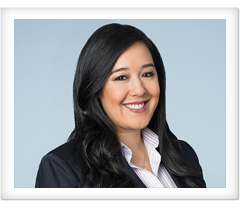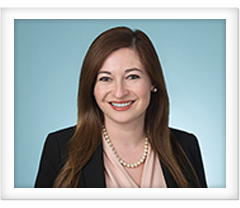| |
 Alerts & Advisories Alerts & Advisories
 Industry Reports & Newsletters Industry Reports & Newsletters
 Published Articles Published Articles
 Social Media & Blogs Social Media & Blogs
 Brochures Brochures

|
 |
TCPA & Consumer Calling
Monthly TCPA Digest
April 2018
By Joshua Briones, Russell Fox, Alex Hecht, Radhika Bhat, Anne-Marie Dao,
Elana R. Safner, Jennifer L. Kelly, E. Crystal Lopez, Esteban Morales,
Nicole Ozeran,
Natalie A. Prescott, and Grace Rosales
We are pleased to present the latest edition of our Monthly TCPA Digest, providing insights and news related to the Telephone Consumer Protection Act (TCPA). This month’s issue examines a recent Illinois federal court ruling limiting class certification in a TCPA case to Illinois residents who received the fax at issue. The district court judge relied on the 2017 U.S. Supreme Court opinion in Bristol-Myers Squibb v. Superior Court, which rejected the California Supreme Court’s finding of specific jurisdiction over mass tort claims filed by nonresidents. In addition, we cover the FCC’s adoption of proposed rules for a reassigned numbers database designed to help callers avoid calling those numbers and an upcoming FCC and FTC joint policy forum on robocalls.
If you have suggestions for topics you’d like us to feature in this newsletter, or any questions about the content in this issue, please feel free to reach out to an attorney on Mintz Levin’s TCPA and Consumer Calling Practice Team. You can click here to subscribe to the Monthly TCPA Digest.

By Elana R. Safner and Russell H. Fox
On March 22, 2018, the Federal Communications Commission (FCC) adopted a Second Further Notice of Proposed Rulemaking (FNPRM) proposing the creation of a reassigned numbers database. Under the proposed rules, the FCC will ensure that a database is available to provide callers with the timely and comprehensive information they need to avoid calling reassigned numbers. The FNPRM also seeks comment on the kind of information that callers need from such a database, the best way for service providers to report this information, and whether the FCC should adopt a safe harbor from TCPA liability for callers who check the database.
The adopted FNPRM was changed from the draft version Chairman Ajit Pai circulated to include wording that addressed the long-awaited U.S. Court of Appeals TCPA ruling in ACA International v. FCC, issued just days prior to the vote. In particular, the FNPRM contains a paragraph seeking comment on the impact of the decision and how possible FCC action in response to that decision could affect the costs and benefits of the database options discussed in the FNPRM. Because of the Court’s decision to set aside the one-call safe harbor as arbitrary and capricious, coupled with the FCC’s increasing focus on cost-benefit analysis, the FCC may now be more likely to adopt a voluntary, rather than mandatory, approach to the reassigned number database.
Despite voting in favor of the proposal, Commissioner Michael O’Rielly said that the database proposal needed to be reassessed in light of the ruling and that more data is needed. In his written statement, he said the FCC should remain focused on “bad actors,” and said ideas “designed to help legitimate businesses operate within the confines of the largely defunct [2015 TCPA Omnibus] Order need to be reexamined closely and methodically.” Taking the opposition position, Commissioner Jessica Rosenworcel called the database “an effort to provide a legal green light for robocallers,” adding that “as long as they consult this list before dialing, they will be free from liability under the [TCPA]. So this protects robocallers.” Commissioner Rosenworcel lamented that it has been six months since the FCC initiated its last robocalling enforcement action; she called on the FCC to move forward with call authentication efforts, including the SHAKEN-STIR framework, which stands for Signature-based Handling of Asserted Information Using to-KENs (Shaken) and Secure Telephone Identity Revisited (Stir), that is already being implemented in Canada.
The day following the Commission vote, the FCC and the Federal Trade Commission (FTC) co-hosted a Joint Policy Forum on combating illegal robocalls, which highlighted recent policy changes, developments, and enforcement actions, as well as technical solutions and tools aimed at fighting the scourge of illegal robocalls. Speakers included the recently installed FCC Chief of Consumer and Governmental Affairs Patrick Webre, FCC Chairman Pai, and FTC Acting Chairman Maureen Ohlhausen, in addition to speakers from divisions and bureaus leading these efforts at the FCC and FTC, and the technology, consumer advocacy, and regulatory communities.
April has been a quiet month thus far on the TCPA front, and no TCPA-related items are scheduled for consideration during the Commission’s April Open Meeting.
Return to top

By Nicole Ozeran
Roughly around this time last year, the U.S. Supreme Court issued its ruling in Bristol-Myers Squibb v. Superior Court, 137 S. Ct. 1773 (2017), wherein the Court rejected the California Supreme Court’s finding of specific jurisdiction over mass tort claims filed by nonresidents.
There, plaintiffs consisted of mostly non-California residents who were injured outside of California. As Bristol-Myers is incorporated in Delaware and headquartered in New York and maintains substantial operations in both New York and New Jersey, the U.S. Supreme Court found that the California courts lacked specific jurisdiction over the company in regards to nonresidents. “The mere fact that other plaintiffs were [harmed in] California does not allow the State to assert specific jurisdiction over the nonresidents’ claims.” Id. at 1776 (emphasis added). However, Bristol-Myers was a mass tort case, and its application in a class action context was not discussed.
Last month, on March 12, 2018, U.S. District Judge Thomas M. Durkin applied the Bristol-Myers reasoning to a Telephone Consumer Protection Act (TCPA) class action matter. In Practice Management v. Cirque Du Soleil, 2018 WL 1255021 (N.D. Ill. Mar. 12, 2018), the district court considered whether to certify a nationwide class under the TCPA, given that the court lacked general jurisdiction over the defendant; specific jurisdiction depended entirely on a fax received by the named plaintiff in Illinois.
The Cirque Du Soleil court found “that the Fourteenth Amendment’s due process clause precludes nonresident plaintiffs injured outside the forum from aggregating their claims with an in-forum resident.” Id. at *47. And given that “Rule 23’s [class action] requirements must be interpreted in keeping with Article III constraints and with the Rules Enabling Act—which instructs that federal procedural rules may not abridge substantive rights . . . a defendant’s due process interest should be the same in the class context.” Id. at *48. Therefore, the court held the Bristol-Myers reasoning applied in the class action context and prevented the court “from exercising personal jurisdiction over defendants with respect to the claims of non-Illinois-resident class members.” Id. at *7. The court dismissed the claims of non-Illinois residents and limited class certification to include only Illinois residents who received the faxes.
This is a great ruling from the perspective of defendants that are defending TCPA class actions. Both Cirque du Soleil and Bristol Myers-Squibb should be raised at class certification, as they are useful tools for limiting the size of the potential class. To avoid these hurdles, Plaintiffs’ counsel will now need to either find named plaintiffs and file a suit in every state or sue the defendant corporation on its home turf.
Return to top

In an economy where timely and effective communication with both current and prospective customers is vital to the success of nearly every business, modern technology, such as autodialers, recorded and artificial voice messages, text messaging, and e-mail provide companies the ability to reach large numbers of people with increasingly smaller up-front costs. But, companies cannot afford to overlook the hidden costs of using these mass communication methods if the many regulations that govern their use are not carefully followed.
Companies have been hit with class action lawsuits under the Telephone Consumer Protection Act (TCPA) for tens or even hundreds of millions of dollars. Mintz Levin's multidisciplinary team work tirelessly to help our clients understand the ever-changing legal landscape and to develop workable and successful solutions. TCPA rules can apply to certain non-sales calls, such as a recorded call to employees about a new work schedule or a text to customers about a new billing system. We advise on how to set up calling campaigns that meet state and federal requirements as well as how the Federal Communications Commission and the Federal Trade Commission apply their rules on calling, faxing, and texting. Given the uncertainties surrounding the TCPA as a result of the FCC's extensive and confusing rulings, we work with clients across many industries, health care, retail, communications and financial services, on matters relating to the following issues:
Compliance: Our TCPA team routinely advises companies on compliance with federal and state sales and marketing requirements. We also know what type of consumer consent is needed for each type of call and how specific consents must be worded. We know when and how to apply a do-not-call list and when and how an opt-out provision must be afforded.
Consumer class action defense: We've been called upon to handle TCPA class actions across all industries and in federal courts across the nation. Our seasoned litigators know the serial plaintiffs and counsel well and are unfazed by their schemes. Fortunately for our clients, our team has succeeded in winning at the motion stage or earlier in the vast majority of TCPA matters we have defended. That is what truly sets us apart. And if a case must go to trial, we have the experience and strength to follow it to the end.
Insurance coverage disputes: We know the arguments insurers use to deny coverage in TCPA suits because we've defended against them. More important, we have a long track record of convincing carriers to fund the defense of these actions and, in some cases, to pay significant portions of settlements. Our goal is to help secure insurance protection and to see to it that carriers make good on their coverage obligations when a claim arises.
|
|

Related Practices

Related Industries

Joshua Briones, Member

Russell Fox, Member

Alexander Hecht, ML Strategies - Vice President of Government Relations

Jennifer Kelly, Member

Radhika Bhat, Associate

Anne-Marie Dao, Associate

E. Crystal Lopez, Associate

Esteban Morales, Associate

Nicole Ozeran, Associate

Natalie A. Prescott, Associate

Elana R. Safner, Associate

Grace Rosales, Senior Business Development Specialist

ML Strategies
|
|